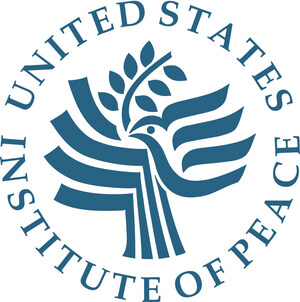Bipartisan Group of National Security Experts Calls for New Approach to Preventing Extremism
Senators Lindsey Graham and Chris Coons and Representative Eliot Engel join the Task Force on Extremism in Fragile States to release the Task Force's final report, "Preventing Extremism in Fragile States: A New Approach"
WASHINGTON, Feb. 26, 2019 /PRNewswire/ -- A bipartisan group of senior national security experts today made an urgent appeal for the adoption of a new approach to preventing the rise and spread of extremism in the Sahel, Horn of Africa and the Near East. This new approach is set out in the congressionally mandated final report and recommendations of the Task Force on Extremism in Fragile States, hosted by the United States Institute of Peace. The Task Force proposes a comprehensive preventive strategy to stop the spread of extremism that reorganizes U.S. efforts and pools international resources to support partners in fragile states in tackling the drivers of extremism.
To effectively implement this preventive strategy, the report calls for the adoption of a framework that recognizes extremism as an inherently political and ideological problem, and the creation of two new mechanisms: (1) a U.S. government-wide initiative to make prevention a priority and ensure coordination and collaboration across U.S. agencies; and (2) an international platform for donors to pool their resources and coordinate their activities in support of prevention.
"In 2004, the 9/11 Commission called for the United States to adopt a preventive strategy to reduce the continued growth of extremism in fragile states," said Governor Thomas Kean, co-chair of the Task Force and former chair of the 9/11 Commission. "While we have successfully fulfilled the Commission's recommendations to prevent attacks on American soil, the U.S. has not been effective in preventing the growth of extremist groups around the world. As long as extremism spreads around the globe, our nation will remain vulnerable to terrorist attacks and our competitors can exploit these conditions to weaken U.S. security and our global leadership."
"A preventive approach is an efficient and effective means of keeping our homeland safe, but its implementation will require a high-level political commitment," said Representative Lee Hamilton, co-chair of the Task Force and former vice-chair of the 9/11 Commission. "We are grateful to the administration and the many members of Congress who have supported our efforts so far and urge them to take up these recommendations."
"Recognizing the need for a strategy to address this enduring threat to U.S. security interests, I authored and Congress passed legislation directing the United States Institute of Peace to stand up a bipartisan task force to develop a comprehensive plan to prevent the underlying causes of extremism in fragile states in the Sahel, Horn of Africa and the Near East," said Senator Graham, chairman of the Senate Appropriations Subcommittee on State, Foreign Operations and Related Programs. "Today's release of that report is an important step in ensuring we take a whole of government approach to directing resources and assistance in a way that will increase our national security."
"The Task Force's report represents the best bipartisan foreign policy thinking on how to position societies to resist extremist ideologies on their own," said Senator Chris Coons, a member of the Senate Committee on Foreign Relations. "Across both sides of the aisle we recognize the importance of mitigating the underlying conditions that allow extremism to persist and spread, particularly in fragile states. We need to address the root causes of terrorism so we can stop crises before they consume entire societies. This report aligns closely with my bipartisan legislation which requires a U.S. government strategy to help stabilize countries that are willing to partner with us to counter extremism and reduce violent conflict."
"After nearly 20 years of war, the Task Force report underscores just how much we have learned about keeping terrorist networks from taking root. Now we need to ensure these lessons are implemented," said Congressman Eliot Engel, chairman of the House Committee on Foreign Affairs. "I will be incorporating Task Force recommendations into my Global Fragility Act, which would establish an interagency initiative to improve America's engagement in fragile states. As the Task Force found, our engagement is essential if we are going to prevent extremist groups from getting a foothold in the first place."
A full version of today's report and list of Task Force members is available online here: https://www.usip.org/Task-Force-Final-Report
About the Task Force on Extremism in Fragile States:
The Task Force is a congressionally directed, bipartisan commission charged with formulating a comprehensive strategy to combat the causes of violent extremism in fragile states. The Task Force is led by former New Jersey Governor Thomas Kean and former Representative Lee Hamilton, the co-chairs of the 9/11 Commission, and is under the auspices of the United States Institute of Peace, an independent, nonpartisan leader in reducing, mitigating, and preventing conflict. It is composed of 15 leading former policymakers, legislators and other experts whose experience and insights have contributed to the development of policy recommendations to address these threats to U.S. security. The Task Force was established pursuant to legislation authored by Senator Lindsey Graham that calls for a "comprehensive plan to prevent the underlying causes of extremism in fragile states in the Sahel, Horn of Africa and the Near East."
SOURCE United States Institute of Peace
Related Links
WANT YOUR COMPANY'S NEWS FEATURED ON PRNEWSWIRE.COM?
Newsrooms &
Influencers
Digital Media
Outlets
Journalists
Opted In





Share this article